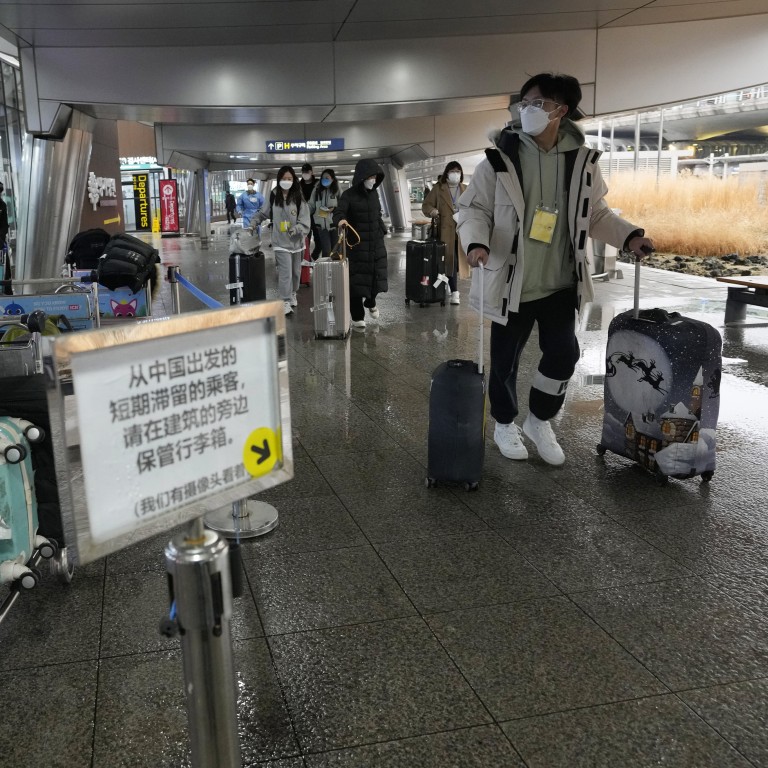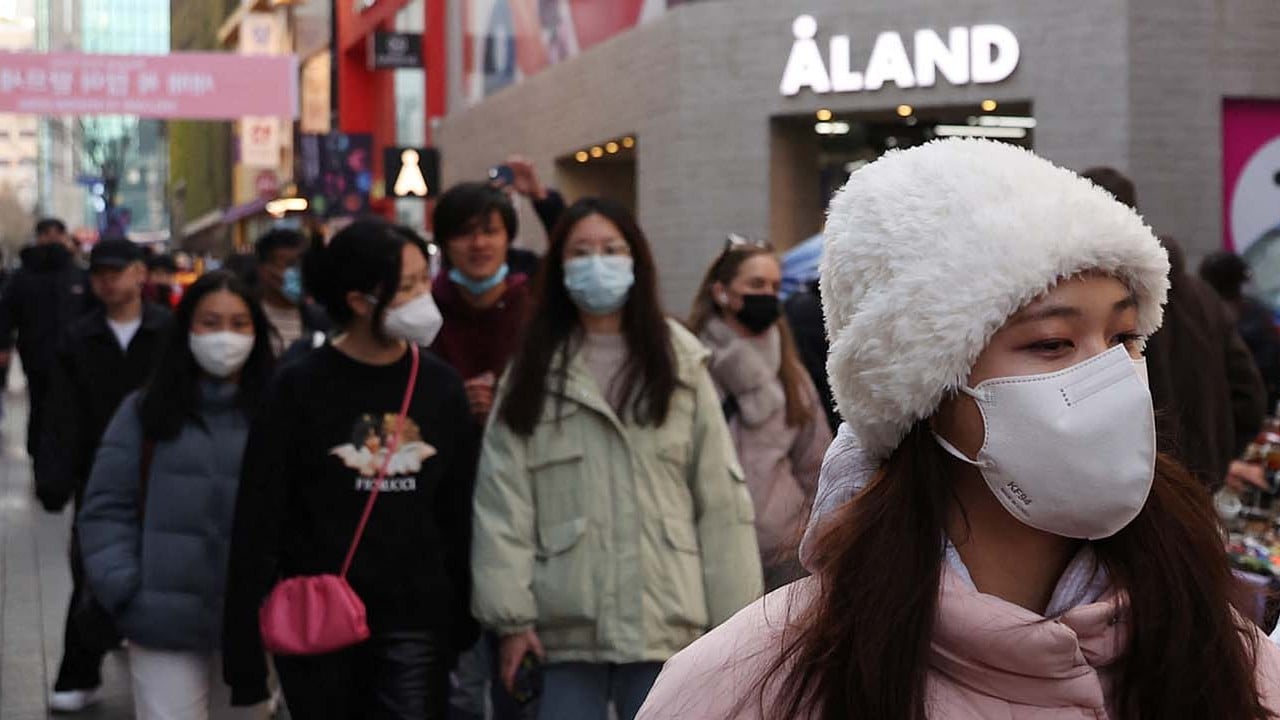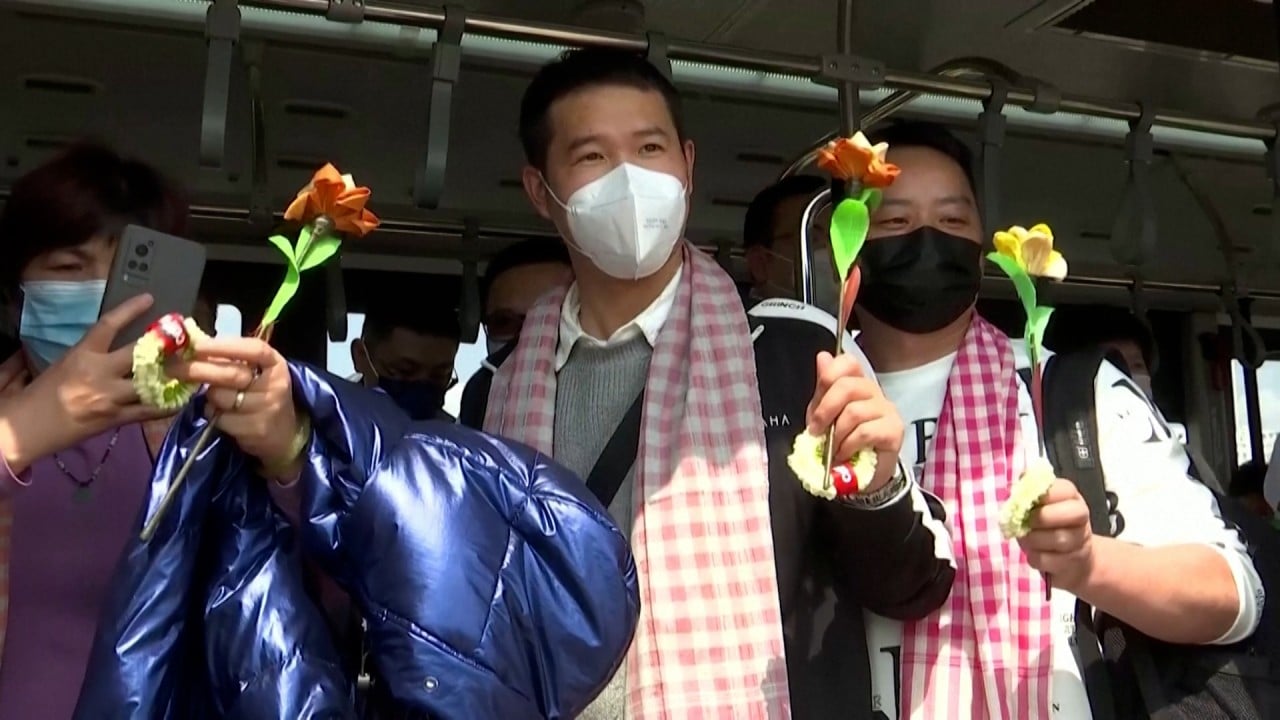
China reopens to South Korean visitors, ending Covid-19 tit-for-tat
- Short-term visas will once again be available from Saturday, the Chinese embassy in Seoul has announced
- The decision follows hard on the heels of Seoul’s decision to lift restrictions on arrivals from China
According to Seoul, the number of Covid-19 infections among Chinese arrivals has dropped significantly and the cases include only known variants of the virus.
Chinese foreign ministry spokeswoman Mao Ning last week described Seoul’s lifting of visa restrictions as “a step in the right direction”.
“China will actively consider the resumption of short-term visas for South Korean citizens on a reciprocal basis. We hope that the Republic of Korea will work with China to make the normal flow of people between the two sides more convenient,” she said on Friday.
A national wave of infections and deaths quickly followed, prompting some countries to impose travel restrictions, such as compulsory testing, on visitors from China out of concern for new variants.
Both Tokyo and Seoul imposed visa restrictions, and Beijing retaliated by halting short-term visas for South Korean and Japanese visitors on January 10.
What does coronavirus have in store for China after massive wave of infection?
Wang Yong, a professor with the school of international studies at Peking University, said lifting visa restrictions indicated willingness by both Beijing and Seoul to amend and improve bilateral relations.
“Lifting the visa restrictions will make it more convenient for China and South Korea to resume interaction, dialogue, academic and commercial exchanges. It will be mutually beneficial to the two countries,” Wang said.
He said negative public discussion and nationalist sentiment on social media platforms on both sides were critical contributors to the visa suspensions.
“This won’t help enhance the bilateral relationship. More communications and friendly exchanges on the ground would be helpful to ease future prospects,” he said.
The lifting of visa suspensions comes amid high anticipation of Chinese tourists whose demand for overseas travel was suppressed for the three years of strict zero-Covid measures, which were fully lifted on January 8.
Border crossings have also been picking up since January 8, hitting a three-year high on February 6. As many as 676,000 cross-border trips were made that day, with most trips made between Hong Kong or Macau and the mainland.
The coronavirus wave in China has subsided with a significant drop in infections, hospital admissions and deaths. Data released by the Chinese Centre for Disease Control and Prevention last week showed that a total of 37,611 people were infected with Covid-19 and being treated in hospitals, including 424 in a critical condition. From February 3 to 9, some 912 Covid-related deaths were reported.
Hong Kong and Macau lead Asia travel recovery, as Chinese tourists return
Research published in the Lancet by George Gao Fu, former director of the China CDC, and his colleagues showed that after reopening no new variants emerged in the initial weeks of China’s first Covid-19 wave – which was mainly caused by the BA.5.2 and BF.7 subvariants already circulating in other parts of the world.
While several countries imposed restrictions on Chinese visitor arrivals amid the surge in Covid-19 cases in China, Singapore was not one of them. Experts in Singapore decided that although there were many cases in mainland China, there were no new variants of concern.
Travellers from China are still subject to travel restrictions in some countries, such as the United States and Britain. Restrictions vary from country to country and include measures such as 48-hour PCR testing before departure or landing.




